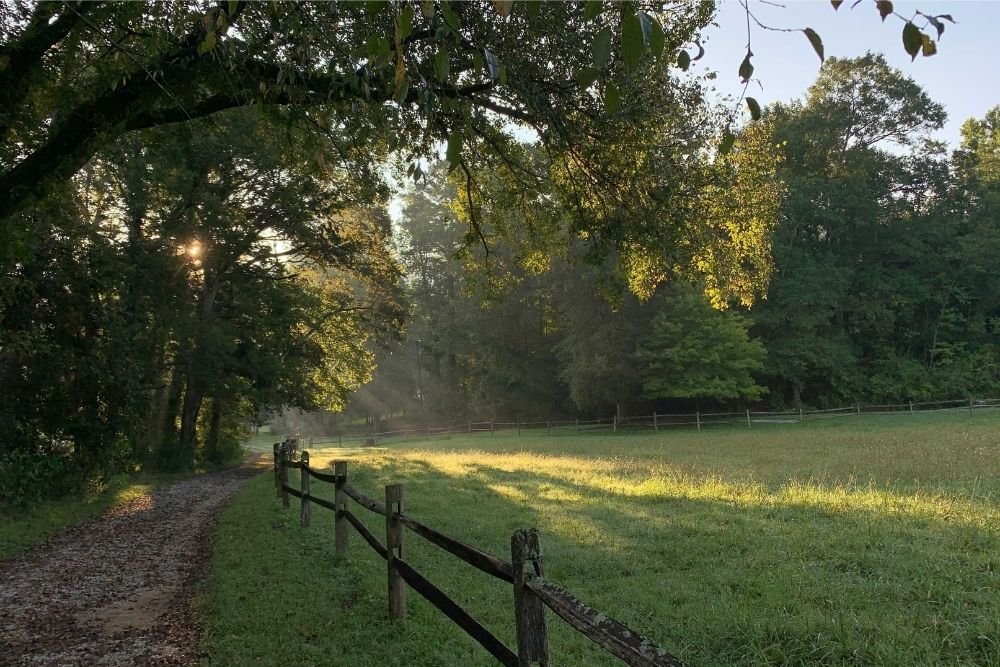Trees: The Best Ecological Bang for Your Buck
There are many things you can do to be a good steward of the environment, but planting a native tree is decisively the “best ecological bang for your buck.” Because of a tree’s sheer size and long lifespan, this makes a tree a prime ecological investment when we discuss restoration and rewilding efforts.
As a tree ages and matures, the ecosystem services it provides becomes more impactful. Living to be hundreds, and in some cases thousands of years old, trees are generally considered to be some of the longest-lived organisms on earth (some more than others), meaning they aren’t just a downpayment for you, but also serve as a multi-generational investment for future people and their inherited lands. Comparing these long-lived giants to their comparatively small and short-lived annual or perennial relatives, one might be able to see just how beneficial planting trees can be.
What are some of trees’ benefits?
Water quality - A mature tree’s size creates superior rainfall interception compared to other plants. The act of intercepting rain before it hits the ground slows down the velocity of the rainfall, reducing erosion and helping water infiltrate the soil more easily. Larger root systems also soak up more water, reducing flooding and input into our sewer systems. More water infiltration into the soil and less water runoff into our streams and rivers means cleaner waterways, drinking water, and underground reservoirs!
Improved soil - Trees act as binders of our soil, helping to keep our soil in place and not easily erodible. Not only do trees hold onto soil and prevent erosion, but they also help make new soil via their decomposing leaves. Tree roots also help to break up compacted soil and break down rocks, which again, helps create more soil. Our soils are a truly precious resource, one we cannot live without. We need to do all we can to help protect and conserve it.
Air quality - Trees need to “breathe” just like we do. However, they do it a bit differently. Through a natural process called respiration, trees inhale carbon dioxide (CO2), and exhale oxygen (O2) back out into the atmosphere -the exact opposite of our respiration process. Because of this inverse process, trees are a frontline defense for many of the atmospheric issues of our industrial age. The rapid warming of our planet - driven by CO2 - can be significantly offset by a tree’s natural gas exchange. Air pollutants, especially in an urban environment, are also in part captured by trees. Trees also help in rainfall production through an active process known as transpiration.
More mass = more habitat and food for wildlife. The larger the plant, the more habitat it provides for wildlife. Birds, mammals, insects, fungi, and virtually all forms of life are supported by these ecosystem keystone species.Trees are in themselves a type of habitat. They host hundreds of other species that live on or around them. For flowering trees, more flowers equal more food (pollen, nectar) for pollinators!
Help cool our cities - Trees serve as a means of cooling our urban centers. Cities can experience a phenomenon known as “Urban Heat Island,” which, simply put, is when urban temperatures are significantly elevated compared to the ambient temperature of surrounding natural areas. Where trees use sunlight and provide shade, cities are covered in concrete, asphalt, and other surfaces that absorb heat and release it back into the surrounding environment, exacerbating temperatures in these areas. The evaporation of water from trees - known as transpiration (mentioned previously), also helps to cool surrounding areas via a process called evaporative cooling. This helps reduce the intensity of the “heat island effect” in our urban areas.
There are also many indirect benefits that trees provide as well, one of the biggest being reduced energy consumption from the heating and cooling of our homes. With deciduous trees, the leaves will shade your house in the summer, keeping it cool. During the cold winter months when the trees are bare, the opposite occurs, and your house is warmed from more direct sunlight. The sound dampening effect trees create cannot be overstated if you live in a highly trafficked area. Because of trees’ leaves and sheer mass, they help significantly in buffering and reducing noise pollution in urban and suburban settings. Trees offer tremendous support environmentally and ecologically, but also can reward your pocketbook in the future. They are one of the easiest ways to increase your home’s aesthetic, and with that - its value!
There are few things that benefit you and your community as much, and for as long, as the simple act of planting a native tree. It's an investment for the future, and for the heritage of the natural landscape. If you don't have a spot for a tree in your yard, perhaps give a tree to someone who does. It is the gift that just keeps on giving!
Here at Reflection Riding, we are obsessed with getting more native trees out into the community and landscape. Not only do we want to get them out, but we want to get them out to you for free when we can! We take part in several tree planting initiatives on a yearly basis that provide free native trees to members of the community. It’s as easy as signing up for our newsletter and following us on social media to stay informed on details about our free tree giveaway programs.
Tennessee Tree Day
In March we will be taking part in Tennessee Tree Day 2022. This tree giveaway program is brought to you by the Tennessee Environmental Council, a non-profit that is doing amazing work. You can visit their website to learn more. Reserved trees can be picked up from Reflection Riding on March 18 and 19 from 9 am-3 pm.
Visit our Native Plant Nursery
We also have an extensive selection of trees and shrubs for sale at our Native Plant Nursery. Although the Nursery is closed during the winter months, we will be back open to the public in March of 2022. In the meantime, you can shop by appointment by contacting Nursery@reflectionriding.org.
Our online plant inventory can be found on our website. Check us out!
- By Scotty Smith, Director of Land Conservation
Scotty is a horticulturist with a passion for all things plants and nature. He is a committed life-long learner and has been studying plants and ecology for more than 10 years. He first began his career as a park ranger working on biological studies, maintaining trails, and practicing land conservation at Shiloh National Military Park. He then set his sights west, where he worked at Colorado State University managing the research arboretum as well as a horticulturist at a landscaping nursery and tree farm. Scotty is an advocate of intersectional environmentalism and giving all of Chattanooga a chance to learn and appreciate the ecology around them to which they are so inextricably linked.



